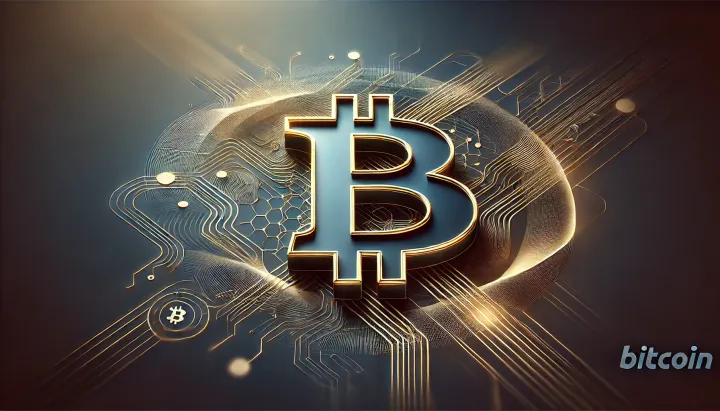Bitcoin Savings: Community Transformation in Thailand
The April 01, 2025 episode of the Robin Seyr Podcast with guest Jimmy Kostro explores how saving a modest 5% in Bitcoin can yield transformative financial benefits and foster community empowerment.

- My 'briefing notes' summarize the content of podcast episodes; they do not reflect my own views.
- They contain (1) a summary of podcast content, (2) potential information gaps, and (3) some speculative views on wider Bitcoin implications.
- Pay attention to broadcast dates (I often summarize older episodes)
- Some episodes I summarize may be sponsored: don't trust, verify, if the information you are looking for is to be used for decision-making.
Summary
The April 01, 2025 episode of the Robin Seyr Podcast with guest Jimmy Kostro explores how saving a modest 5% in Bitcoin can yield transformative financial benefits and foster community empowerment. The discussion highlights innovative education models, off-grid mining initiatives, and strategic community events in Northern Thailand. These themes underscore Bitcoin’s potential to drive both economic and social change.
Take-Home Messages
- Bitcoin Savings: Consistent savings in Bitcoin leverage compound growth for long-term financial empowerment.
- Community Education: Physical centers and tailored curricula demystify Bitcoin for diverse audiences.
- Off-grid Innovation: Renewable-powered, remote mining projects showcase Bitcoin’s adaptable applications.
- Regulatory Clarity: Clear guidelines and messaging are essential to support innovative Bitcoin payment systems.
- Global Outreach: Strategic community events and partnerships drive adoption and expand Bitcoin’s societal impact.
Overview
Jimmy Kostro outlines the transformative potential of saving a fixed percentage of income in Bitcoin, emphasizing the power of compounding growth over a decade. He provides concrete examples from Northern Thailand where modest savings have led to significant financial empowerment for low-income individuals. His narrative underscores how even minimal, regular contributions can accumulate into substantial wealth over time, reinforcing the practical benefits of disciplined savings.
He describes the Bitcoin Learning Center in Chang Mai as a hub for both introductory and advanced Bitcoin education. Kostro stresses the challenge of balancing content to meet the needs of beginners while engaging experienced Bitcoin users. He explains that this dual-track approach ensures that the learning environment remains accessible yet challenging, fostering a community that is both inclusive and intellectually stimulating.
The podcast details innovative off-grid mining projects that utilize solar energy to power Bitcoin miners in remote areas. These initiatives not only support Bitcoin operations but also provide critical services to marginalized hill tribes in isolated regions. Kostro illustrates how these projects serve a dual purpose by harnessing renewable energy to both promote technological innovation and enhance community infrastructure.
Kostro emphasizes the importance of community engagement through physical spaces and large-scale Bitcoin events. These gatherings foster collaboration, demystify complex Bitcoin concepts, and drive widespread adoption by creating a tangible, interactive experience. By bridging local and global Bitcoin communities, these events enable knowledge sharing, build trust, and amplify the overall impact of Bitcoin education initiatives.
Stakeholder Perspectives
- Community members value accessible education and tangible benefits but worry about technical complexity and language barriers.
- Educators and organizers seek balanced curricula that address both entry-level and advanced topics.
- Regulatory authorities emphasize the need for clear AML and compliance frameworks to support innovation.
- Philanthropic organizations see opportunities for socioeconomic uplift but stress the importance of sustainability.
- Business leaders and investors are focused on the financial empowerment narrative and scalability of Bitcoin-based models.
Implications and Future Outlook
The episode illustrates that disciplined Bitcoin savings can yield significant economic empowerment, potentially transforming personal finance and reducing vulnerability among low-income populations. Strategic education initiatives and community centers play a critical role in translating these benefits into real-world impact. Stakeholders must invest in scalable education and infrastructure to fully realize these opportunities.
Kostro’s discussion on off-grid mining and renewable energy applications signals a broader shift toward sustainable, decentralized Bitcoin operations. Such innovations can bridge energy gaps in remote areas while enhancing Bitcoin’s global reach. Future policies and investments will need to support these dual objectives of technological innovation and social inclusion.
The conversation also underscores the need for clear regulatory frameworks and effective public messaging to build trust. Transparent guidelines can help demarcate Bitcoin’s unique value from other digital assets, fostering informed adoption. This alignment between policy and innovation is vital for Bitcoin’s continued evolution and societal integration.
Information Gaps
- How can educational frameworks be optimized to cater to both Bitcoin newcomers and experienced users? This question is critical as it addresses the need for inclusive learning models that support broader adoption. Balanced education strategies can empower diverse audiences and enhance Bitcoin literacy.
- What are the long-term financial impacts of consistently saving a fixed percentage of income in Bitcoin? This inquiry is significant because it explores the compound benefits of disciplined savings over time. Insights from this research can guide financial planning for underbanked communities.
- What are the most effective methods for delivering Bitcoin education to remote and marginalized communities? This question targets the digital divide and addresses the unique challenges of engaging isolated populations. Bridging this gap can expand Bitcoin’s reach and promote socioeconomic empowerment.
- How do current AML and SEC regulations affect the deployment of Bitcoin payment solutions? This research is vital given the evolving regulatory landscape influencing Bitcoin transactions. Clarifying these impacts can help stakeholders navigate compliance while advancing practical applications.
- What strategies can be employed to differentiate Bitcoin’s unique properties from other digital assets in public discourse? This question is key to building trust and clear market perception. Effective differentiation can strengthen Bitcoin’s positioning and inform policymaker and investor decisions.
Broader Implications for Bitcoin
Sustainable Financial Inclusion
Bitcoin savings can serve as a tool for sustainable financial inclusion, particularly among marginalized communities. By leveraging the power of compound growth, small, consistent savings can accumulate into significant financial resources over time. This model could inform broader economic policies aimed at reducing inequality and promoting self-sufficiency.
Decentralized Community Empowerment
The use of physical education centers and community events underscores the potential of decentralized models to empower local populations. Such initiatives can facilitate peer-to-peer learning and create resilient networks that support economic and social development. Broadly, this could influence global strategies for community-driven innovation and circular economies.
Innovative Energy Utilization
Off-grid mining projects powered by renewable energy illustrate how Bitcoin can drive innovative energy solutions in remote regions. This approach not only optimizes resource use but also provides an alternative revenue stream for underserved areas. In the broader context, such innovations could catalyze new business models integrating energy sustainability with digital finance.
Regulatory Evolution and Market Trust
Clear regulatory frameworks are essential for the maturation of Bitcoin payment systems and broader market trust. As Bitcoin continues to evolve, regulators will need to balance innovation with investor protection and compliance. This evolution can set a precedent for how digital financial systems operate within established legal frameworks.



Comments ()